Biography of Carl von Ossietzky
Biography
Carl von Ossietzky was born in Hamburg on October 3rd 1889. His parents were Rosalie Marie Pratzka, a housemaid, and the stenographer Carl Ignatius von Ossietzky. After the early death of his father, young Carl spent many years living with his aunt before again living with his mother. In 1904 he quit middleschool without graduating. He attended Goldmann private school, yet also did not graduate. He began working as an assistant in the district court of Hamburg.
Carl von Ossietzky's interests were focused mainly on political and cultural developments during the time of the Weimar Republic. Evenings and weekends were regularly spent at events and lectures, and he eventually began to write his own brief texts and political articles. Ossietzky became a member of the Democratic Coalition, the German Peace Society and the Society of Monists (Monistenbund). By now his articles are being regularly published in the magazine „Das freie Volk (The Free Folk)“, writes for the Society of Monists and gives lectures on political and literary subjects.
In 1912 Carl von Ossietzky met Maud Hester Lichfield-Wood, the daughter of a Britsih officer, who was actively participating in the Suffragette Movement. They were married in England in 1913, and in 1919 a daughter was born: Rosalinda. Ossietzky was drafted into the army in 1916 and sent to the western front. He was in Brussels, Belgium when the war ended.
After returning to Hamburg Carl von Ossietzky quit his job at the district court in 1919 in order to focus on his political and journalistic work. As a passionate pacifist and supporter of the republic he became the general secretary of the German Peace Society in Berlin in the summer of 1919. in 1920 he became a member of the New Fatherland Alliance (Bund Neues Vaterland), which later became the German League for Human Rights. Furthermore he is a founding member of the Peaceful Union of War Veterans (Friedensbundes der Kriegsteilnehmer), which later initiated the „War - Never Again“ movement and published the magazine bearing the same name. In the following years he worked as a journalist and editor for the social-democratic newspaper „Berliner Volks-Zeitung (Berlin People's Paper)“, the liberal-left weekly newspaper „Das Tagebuch (The Diary)“ and the paper „Montag Morgen (Monday Morning)“. He founded the Republican Party with Karl Vetter and Berthold Jacob in 1924 and ran for office in the Reichstag, yet the party did not recieve a mandate and soon thereafter disbanded. Ossietzky switched to the weekly newspaper „Die Weltbühne (the World Stage)“ in 1926, for which Kurt Tucholsky was also a writer. In August of that year Ossietzky and Tucholsky both got voted into the management board of the League for Human Rights.
In 1927 Ossietzky becomes the head of the newspaper „Die Weltbühne (The World Stage)“ which is strictly pacifistic, and evolves into one of the most important and incisive publicists and critics of the Weimar Republic. Due to his anti-militaristic stance in his reporting he was taken to court numerous time in the past years. 1931 saw the most serious case against him, where he was charged with disclosing miltary secrets while reporting on the arms build-up occurring at the time, and was sentenced to 18 months in prison. A clemency plea was dismissed. Ossietzky began his sentence in May of 1932, and recieved an early release in December of that year because of the Christmas amnesty. After the Reichstag Fire on February 28th 1933 he was once again arrested.
On April 6th 1933 Carl von Ossietzky is transported to the concentration camp Sonnenburg near Küstrin-Kietz, Poland. In February 1934 he was then brought to a different concentration camp, Esterwegen in Emsland, Germany. Due to the extreme abuse he suffered there his health deteriorated to a life-threatening state. He was transferred to the Hosptal of the Berlin police in May 1936 because of the public attention he was getting due to a campaign to award him the Nobel Peace Prize which started in 1934. In November 1936 the critically ill Ossietzky was formally released from incarceration and went to the Westend-Hospital in Berlin, yet was under constant surveillance by the police.
That same month the Nobel Committee retroactively awarded Carl von Ossietzky with the Nobel Peace Prize for 1935. After trying in vain to dissuade Ossietzky from accepting the prize, Hermann Göring prohibited him from travelling to Oslo to recieve it. In 1937 Hitler decreed that no German may accept a Nobel Prize anymore. Carl von Ossietzky, residing in the Sanatorium Northend since December 1936 and still under police surveillance, died on the 4th of May, 1938 due to the consequences of the abuse he endured in the concentration camps.
Further Reading:
Carl von Ossietzky – Sämtliche Schriften, Oldenburger Gesamtausgabe, Rowohlt Verlag, Reinbek 1994
Carl von Ossietzky Wikipedia hier »
Carl von Ossietzky LeMO hier »
Zuletzt geändert am 8. September 2022





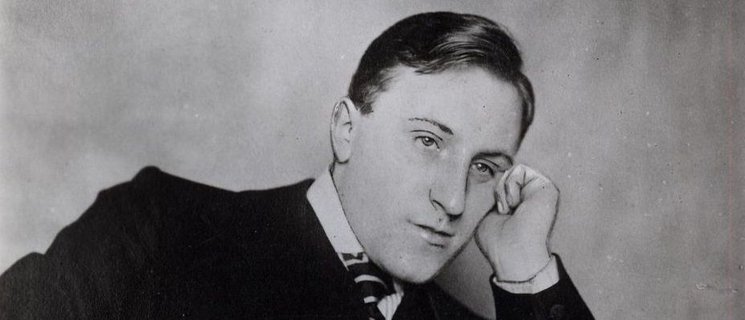
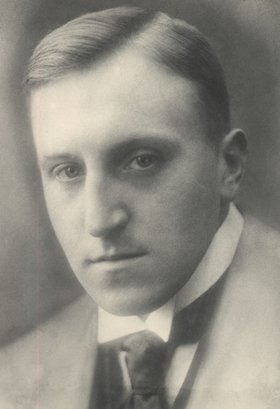
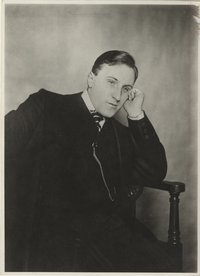
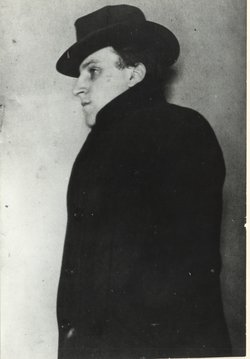
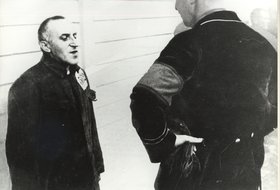
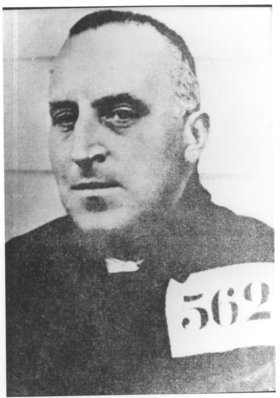
 zurück
zurück